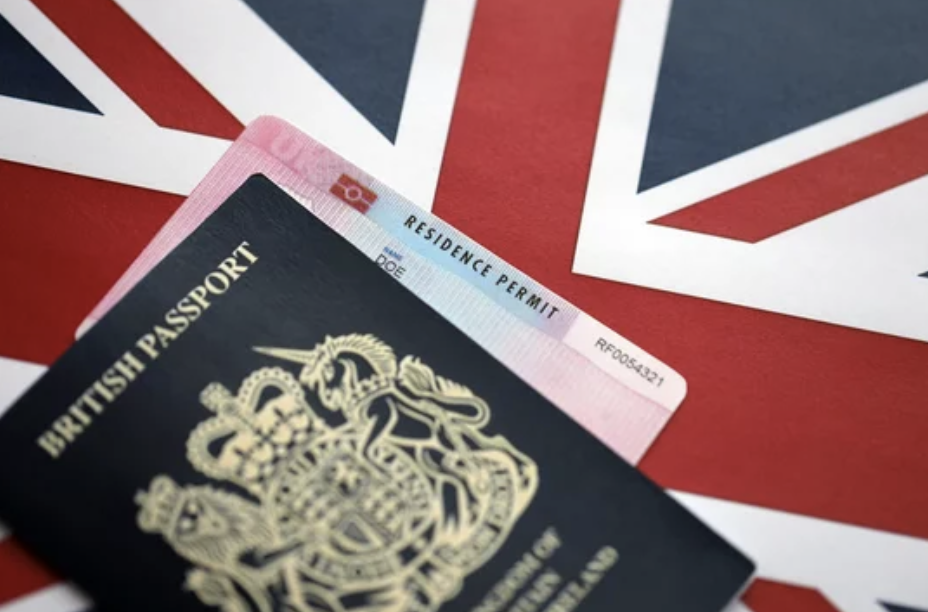The United Kingdom, a global hub of opportunity, has long attracted immigrants seeking education, work, and refuge. In 2025, the UK’s immigration landscape is evolving rapidly, with tightened visa policies, heightened border enforcement, and a renewed focus on integration. The Home Office’s recent push to restrict international student visas reflects broader efforts to balance economic needs with public concerns about migration. This article explores the UK’s immigration policies, visa processes, cultural adaptation challenges, and personal stories of immigrants, offering practical insights for those embarking on this transformative journey.
UK Immigration Policies: A Shifting Framework
In 2025, the UK government has introduced significant changes to its immigration system, driven by political pressures and economic priorities. The Home Office’s latest measures target international student visas, aiming to reduce net migration while addressing labor shortages in critical sectors like healthcare and technology. Net migration reached 764,000 in 2024, prompting stricter rules, including higher salary thresholds for work visas and limits on dependants for students. The Points-Based Immigration System, introduced post-Brexit, remains the cornerstone, prioritizing skilled workers and students with offers from reputable institutions.
The Home Office’s focus on student visas stems from concerns about visa misuse, with reports suggesting some students use study routes as a pathway to long-term residency. New restrictions include increased scrutiny of sponsoring institutions and a proposed cap on student visa numbers, particularly for non-research postgraduate courses. These changes have sparked debate, with universities warning of financial strain, as international students contribute £41.9 billion annually to the UK economy.
“We must ensure our immigration system supports genuine students while preventing abuse,” said Home Secretary Yvette Cooper. “Our priority is a fair, controlled approach that benefits the UK.”
Despite these restrictions, pathways like the Skilled Worker Visa and Graduate Visa remain open, offering opportunities for professionals and recent graduates to stay and work. Asylum policies, however, have tightened, with faster processing times and stricter criteria for humanitarian protection. The Illegal Migration Act 2023 continues to shape asylum enforcement, prioritizing deportations to safe third countries like Rwanda, though legal challenges persist.
Visa Processes: A Step-by-Step Guide
Navigating the UK’s visa system can be daunting, but understanding the process is key to success. The most common visa types include the Student Visa, Skilled Worker Visa, Family Visa, and Asylum Seeker Status. Each requires specific documentation and adherence to strict guidelines.
For a Student Visa, applicants need a Confirmation of Acceptance for Studies (CAS) from a licensed sponsor, proof of funds (approximately £1,334 per month in London), and English language proficiency. The process typically takes 3–8 weeks, with costs starting at £490. Tip: Apply early and ensure your CAS is error-free, as mistakes can lead to delays or refusals.
The Skilled Worker Visa requires a job offer from an approved employer with a minimum salary of £38,700 (or the going rate for the role). Applicants must score 70 points under the Points-Based System, based on job offer, skill level, and English proficiency. Processing times average 3 months, and costs range from £719 to £1,639, depending on the job’s shortage status. Tip: Verify your employer’s sponsor license status to avoid scams.
Asylum applications are more complex, requiring proof of persecution or danger in the applicant’s home country. The Home Office aims to process claims within 6 months, but backlogs persist. Tip: Seek legal advice from organizations like the Refugee Council to strengthen your case, as rejections can lead to detention or deportation.
“The visa process felt overwhelming, but having a lawyer review my documents made all the difference,” said Aisha, a Nigerian student at the University of Manchester. “I wish I’d known to double-check my CAS earlier.”
Challenges of Immigration: Barriers and Solutions
Immigrants in the UK face numerous challenges, from navigating bureaucracy to overcoming cultural barriers. The cost of living is a significant hurdle, with London’s average rent hitting £2,699 per month in 2025, according to Rightmove. For students and low-wage workers, this can strain finances, especially with visa fees and the NHS surcharge (£1,035 per year).
Discrimination and social isolation also pose challenges. Many immigrants report feeling excluded due to language barriers or cultural differences. A 2024 study by the Migration Observatory found that 32% of immigrants experienced workplace discrimination, particularly in low-skilled sectors. Asylum seekers face additional hurdles, with limited access to work or benefits while awaiting decisions.
Practical tip: Join community groups or university societies to build a support network. Language classes, often free through local councils, can boost confidence and integration. For workplace issues, consult unions or organizations like Work Rights Centre for guidance on labor rights.
“I felt like an outsider at first,” shared Carlos, a Venezuelan asylum seeker in Birmingham. “But volunteering at a local charity helped me connect with people and feel at home.”
Cultural Adaptation: Embracing a New Identity
Adapting to UK culture requires navigating a blend of traditions, social norms, and workplace expectations. Immigrants often face a “cultural shock”, from the UK’s reserved communication style to its obsession with queuing. Food, weather, and humor also take getting used to. For instance, the British love for tea and understated humor can feel alien to newcomers from more direct cultures.
Tip: Observe local customs, like saying “please” and “thank you” frequently, to build rapport. Engage with cultural events, such as Bonfire Night or Chinese New Year festivals, to understand the UK’s diversity. For students, university orientation programs offer cultural workshops to ease the transition.
Language proficiency is critical. While English is the primary language, regional accents and slang (like “mate” or “cheers”) can confuse newcomers. Tip: Use apps like Duolingo or BBC Learning English to improve fluency, and don’t shy away from asking locals to explain unfamiliar terms.
“I struggled with the British accent at first,” said Priya, an Indian tech worker in London. “But watching British shows like ‘The Great British Bake Off’ helped me pick up the lingo and feel more connected.”
Success Stories: Immigrants Thriving in the UK
Despite challenges, many immigrants find success in the UK, contributing to its cultural and economic fabric. Take Amir, a Syrian refugee who arrived in 2018. After gaining asylum, he pursued a degree in engineering at the University of Bristol and now works for a renewable energy firm. “The UK gave me a second chance,” he said. “The Graduate Visa let me stay and build a career.”
Similarly, Mei, a Chinese student, leveraged her Master’s degree from UCL to secure a Skilled Worker Visa in finance. “The visa process was stressful, but networking through LinkedIn and university career fairs opened doors,” she shared. Her story highlights the importance of proactive job hunting and building professional connections.
Tip: Attend industry events and use platforms like Meetup to network. For refugees, organizations like Breaking Barriers offer tailored career support, from CV writing to interview coaching.
Legal Guidance: Staying Compliant
Staying on the right side of UK immigration law is crucial. Overstaying a visa or working without permission can lead to detention, fines, or bans. The Home Office has ramped up enforcement, with 12,000 deportations in 2024. Tip: Regularly check your visa status via the UKVI online portal and renew well before expiry.
For asylum seekers, understanding appeal rights is vital. If a claim is rejected, you have 14 days to appeal. Legal aid is available for eligible cases, but funding cuts have limited access. Tip: Contact charities like Refugee Action for free or low-cost legal support.
“I almost lost my case because I didn’t understand the appeal process,” said Fatima, an Eritrean asylum seeker. “A pro bono lawyer saved me, but I wish I’d sought help sooner.”
Looking Ahead: The Future of Immigration in the UK
The UK’s immigration policies will likely remain dynamic, shaped by political shifts and economic needs. The Home Office’s student visa restrictions may evolve, with potential exemptions for STEM fields to address skills shortages. Meanwhile, public attitudes toward migration are mixed, with a 2025 YouGov poll showing 48% of Britons favor reducing immigration, yet 62% value immigrants’ contributions to the NHS.
For immigrants, preparation is key. Whether pursuing a visa, adapting to cultural norms, or overcoming challenges, resilience and resources pave the way. By understanding policies, seeking support, and embracing the UK’s diversity, newcomers can thrive in this complex but rewarding landscape.














0 Comments